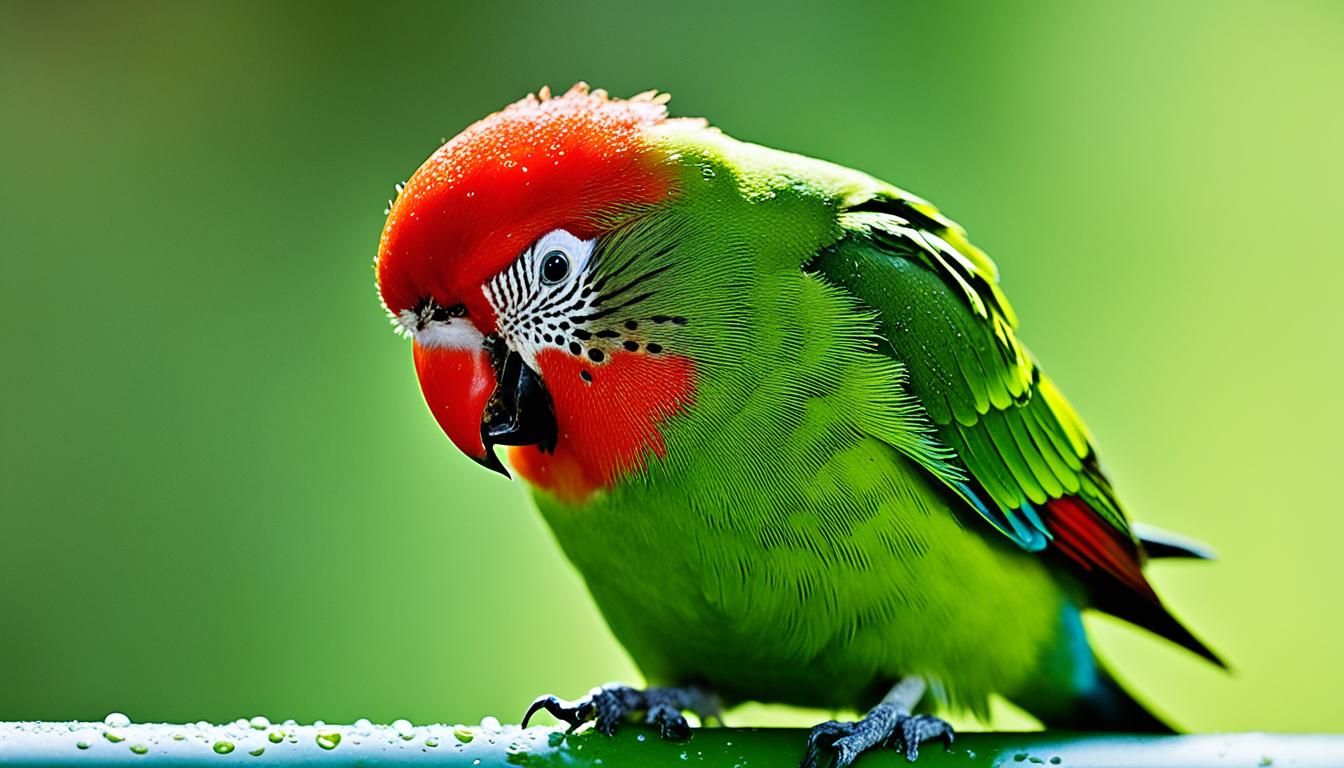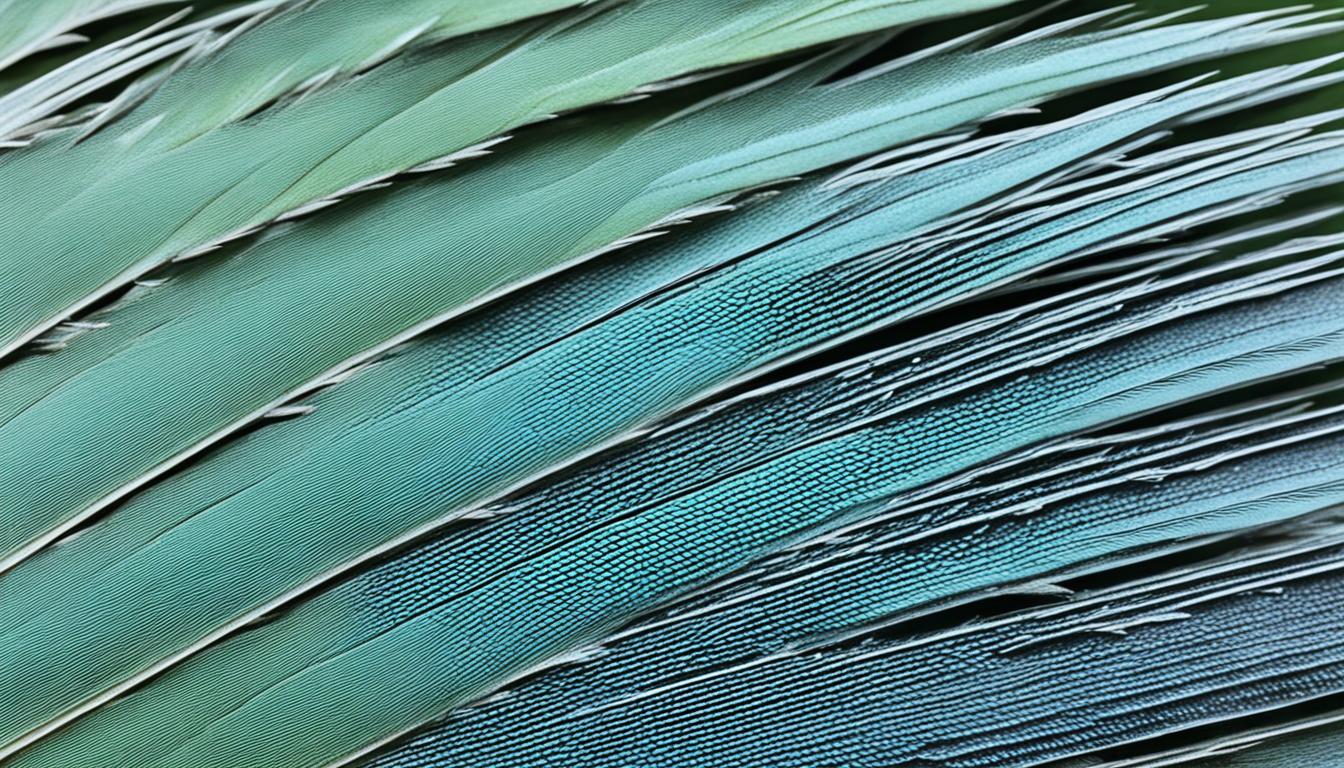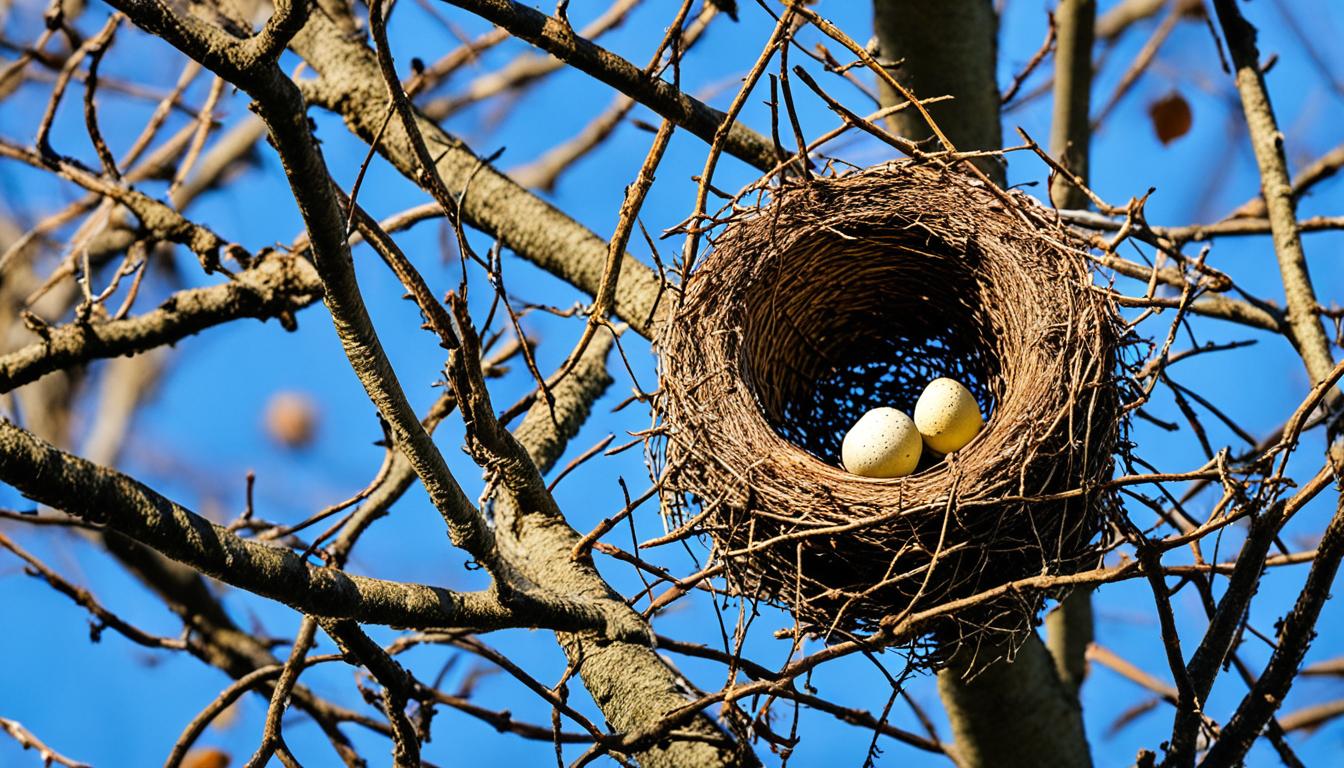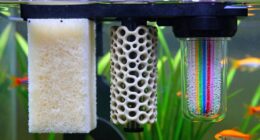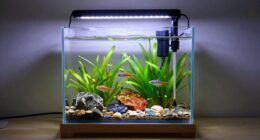Did you know that parakeets can consume tomatoes? These vibrant birds, recognized for their lively demeanor, can include this succulent fruit in their diet. However, it is important to note that not all parts of the tomato plant are safe for them.
Tomatoes are 94% water and packed with antioxidants, vitamins A, and K, which are beneficial for the well-being of birds. However, the stems and leaves of the tomato plant contain toxins that can be harmful to parakeets. Therefore, it’s crucial to remove the stems and leaves before offering tomatoes to your feathered friends.
Additionally, it’s essential to wash the tomatoes thoroughly to remove any pesticide or insecticide residue. By taking these precautions, you can safely incorporate tomatoes into your parakeet’s diet, providing them with a tasty and nutritious treat.
Key Takeaways:
- Parakeets can eat tomatoes, but the stems and leaves should be removed.
- Tomatoes are 94% water and rich in antioxidants and vitamins A and K.
- Wash tomatoes thoroughly to remove pesticide or insecticide residue.
- Offering tomatoes to parakeets is a tasty and nutritious treat for them.
- Ensure a safe and balanced diet for your parakeets to thrive.
Safe Foods for Parakeets
In addition to tomatoes, there are several other safe foods that parakeets can enjoy. These fruits and vegetables provide additional hydration, fiber, vitamins, and minerals to complement the parakeet’s diet. Some of their favorite treats include:
- Pears
- Melon
- Apples
- Blueberries
- Oranges
- Cucumber
- Cabbage
- Kale
- Parsley
- Bok Choy
- Kiwi
- Carrots
- Brussels Sprouts
- Squash
- Bananas
- Celery
These safe foods for parakeets provide variety and nutrition, ensuring a well-rounded diet. It’s important to introduce new foods gradually and monitor your parakeet’s response. Remember to wash fruits and vegetables thoroughly before giving them to your feathered friend.

“A healthy diet for parakeets includes a variety of safe foods that provide hydration, fiber, vitamins, and minerals.”
Unsafe Foods for Parakeets
While there are many safe foods for parakeets, it is important to be aware of the foods that can be harmful to them. Feeding parakeets the wrong foods can lead to various health issues and compromise their well-being. It is crucial to avoid offering certain foods to keep our feathered friends safe.
Foods to Avoid:
- Avocado: This fruit contains a toxin called persin, which can be extremely harmful to parakeets. It can cause respiratory issues and even lead to death, so it should never be fed to them.
- Chocolate: Chocolate contains theobromine, which is toxic to parakeets. Even small amounts can cause severe health problems, including heart issues and seizures.
- Caffeine: Parakeets are highly sensitive to caffeine. It can overstimulate their nervous system and cause heart problems, seizures, and even death. Avoid giving them coffee, tea, or any caffeinated beverages.
- Cheese and Dairy Products: Parakeets are lactose intolerant, and dairy products can cause digestive issues. Avoid feeding them cheese, milk, or any other dairy products.
- Salt: High sodium levels can lead to dehydration and kidney problems in parakeets. Avoid giving them salty foods, such as salty snacks, chips, or processed foods.
- Rhubarb: Rhubarb leaves contain toxic substances that can harm parakeets. Make sure to keep them away from any rhubarb plants or foods containing rhubarb.
- Daffodils: Daffodils contain toxic alkaloids that can be harmful to parakeets if ingested. Keep these flowers out of their reach.
- Garlic and Onion: Garlic and onion contain compounds that can damage a parakeet’s red blood cells and cause anemia. Keep these ingredients out of their diet.
- Xylitol: Xylitol is an artificial sweetener that is highly toxic to parakeets. It can cause a sudden drop in blood sugar levels and liver failure. Avoid any foods or products containing xylitol.
By knowing and avoiding these unsafe foods, we can protect our parakeet companions and ensure their health and happiness.
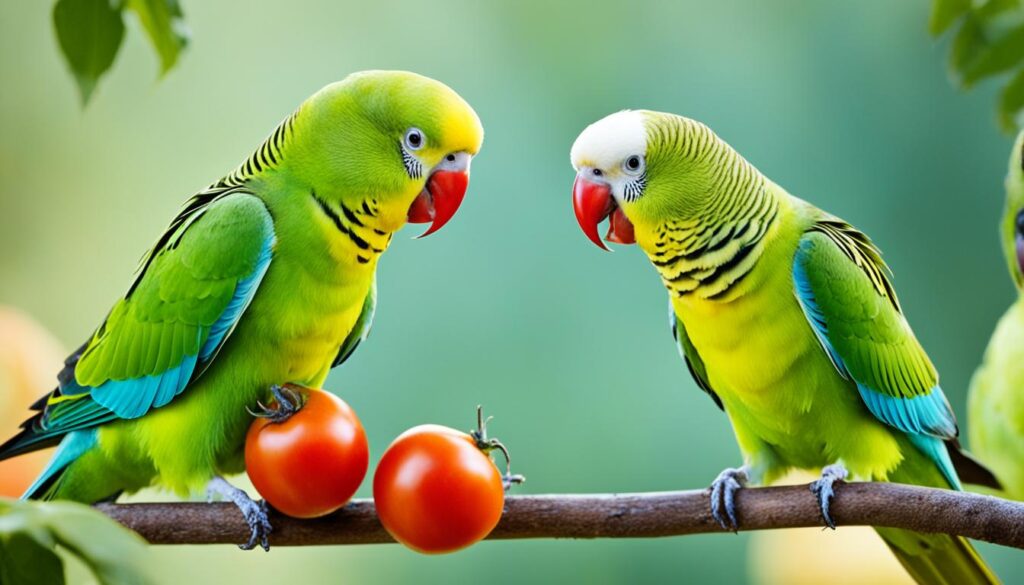
A Balanced Diet for Parakeets
Parakeets, like all pets, require a balanced diet to maintain optimal health. Providing them with a diverse range of foods ensures that they receive all the essential nutrients they need to thrive. A balanced diet for parakeets typically consists of a combination of pellets or seeds, fruits, vegetables, and nuts.
It is recommended that 75-80% of a parakeet’s diet should be made up of pellets or seeds. These serve as the primary source of energy and provide essential nutrients such as protein, carbohydrates, and fats. You can find specially formulated parakeet pellets at pet stores, which are designed to meet their specific dietary requirements.
The remaining 20-25% of their diet should consist of fresh fruits, vegetables, and nuts. This portion offers additional vitamins, minerals, and fiber that complement the nutritional profile of pellets or seeds. Fruits such as apples, pears, and blueberries are great options to include in their diet. Vegetables like carrots, kale, and cucumbers provide essential vitamins and minerals. Nuts like almonds or walnuts can be offered as occasional treats.
It’s important to note that parakeets should not be solely fed pellets or seeds as this can lead to digestive problems and nutrient deficiencies. Offering a variety of foods not only provides a more interesting and engaging diet for our feathered friends but also ensures they receive a wide range of nutrients for overall well-being.
The Benefits of a Balanced Diet
Providing a balanced diet has numerous benefits for parakeets. By incorporating a variety of foods into their diet, we can help prevent boredom and encourage them to explore different tastes and textures. This can also promote natural foraging behaviors, keeping them mentally stimulated and happy.
A balanced diet also supports their immune system, helping to prevent illnesses and keep them healthy. The vitamins, minerals, and antioxidants found in fruits and vegetables can boost their overall well-being and strengthen their immune responses.
Additionally, a balanced diet promotes healthy feather growth, vibrant plumage, and optimal weight management. It’s crucial to offer a diverse range of foods to ensure they receive all the necessary nutrients for these essential functions.
“A varied and balanced diet is key to keeping our parakeets healthy and happy. By providing a combination of pellets or seeds, along with fresh fruits, vegetables, and occasional nuts, we can ensure they receive a wide range of nutrients and enjoy a diverse and engaging diet.”
Remember to always consult with a veterinarian or avian specialist for guidance on the specific dietary needs of your parakeet. Every bird is unique, and they may have individual dietary requirements or restrictions that need to be considered.
To learn more about safe and unsafe foods for parakeets, continue reading Section 2: Safe Foods for Parakeets and Section 3: Unsafe Foods for Parakeets.

Recommended Foods for Parakeets
| Food | Category | Notes |
|---|---|---|
| Pellets or Seeds | Main Diet | Make up 75-80% of their diet |
| Fruits | Supplemental | Offer a variety of fresh fruits |
| Vegetables | Supplemental | Include a mix of nutritious vegetables |
| Nuts | Treats | Offer nuts occasionally in small quantities |
Conclusion
In conclusion, parakeets can safely consume tomatoes as part of their diet, but it is crucial to remove the stems and leaves to avoid potential toxicity. When it comes to providing a balanced diet for parakeets, it is important to offer a variety of safe foods that include fruits, vegetables, and nuts. These foods provide essential nutrients and contribute to the overall well-being of parakeets.
It is essential to avoid feeding parakeets any foods that are toxic or high in sugar, sodium, or fat. Avocado, chocolate, caffeine, cheese, and dairy products, among others, should be kept away from parakeets to prevent potential health issues.
By offering a well-rounded diet consisting of a proper mix of pellets or seeds, along with fruits, vegetables, and nuts, parakeets can thrive and lead a healthy life. Ensuring a well-balanced diet for parakeets is key to supporting their optimal health and longevity.
